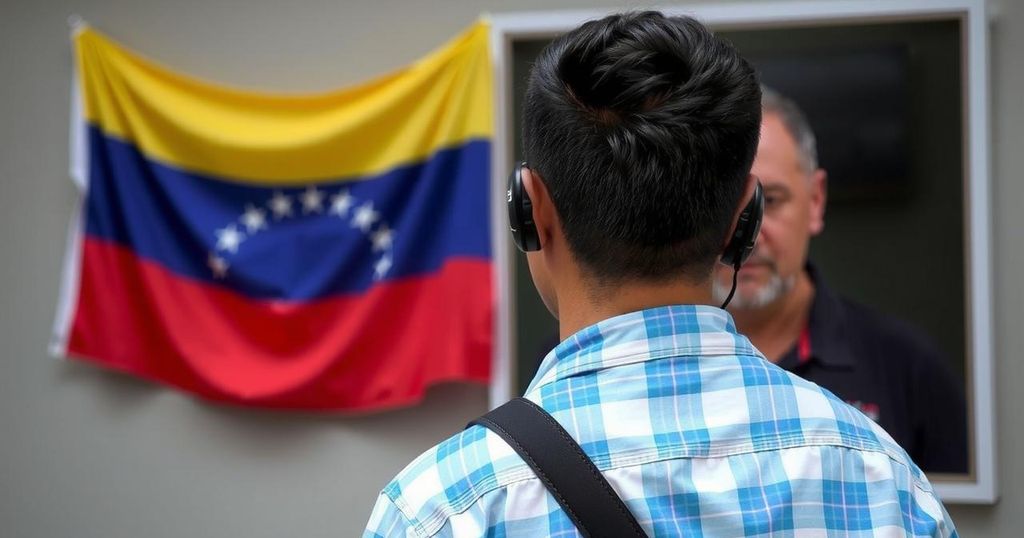Venezuelan opposition members at the Argentine Embassy face dire conditions, including prolonged electricity outages, amidst accusations of a government siege. Despite asylum being granted, the Venezuelan government refuses to allow their departure, provoking outrage from the OAS, which condemns the brazen violation of diplomatic norms.
Magalli Meda, a prominent Venezuelan activist, reported that the Argentine Embassy in Caracas has been deprived of electricity for 35 consecutive days, causing grave concern for six opposition members seeking refuge there. Referring to the embassy as a “prison embassy,” she characterized this situation as a serious violation of human rights. This contention arises amid tensions following the controversial Venezuelan presidential elections in July, where both President Nicolás Maduro and opposition candidate Edmundo González claimed victory. Subsequently, the Supreme Court declared Maduro the winner, while a Venezuelan court issued an arrest warrant for González in September, prompting his departure to Spain after securing safe passage.
Amid this turmoil, Argentina has extended asylum to six opposition members who stand accused of conspiracy and treason. However, the Venezuelan government is reportedly obstructing their exit. Notably, Fernando Martínez Mottola, an advisor to the largest opposition coalition, recently vacated the Argentine Embassy. González has accused Venezuelan security forces of conducting a relentless siege on the embassy to apprehend the asylum seekers.
The General Secretariat of the Organization of American States (OAS) has condemned these acts, emphasizing the hazardous conditions created by the military presence, along with power and water shortages. It underscored that these actions constitute a direct threat to the safety and lives of the individuals seeking asylum. The OAS insists on the urgent need for safe-conduct passes for these refugees. According to the Vienna Convention on Diplomatic Relations, host nations are obliged to facilitate the duties of diplomatic missions, ensuring the safety and liberty of those seeking asylum.
The political landscape in Venezuela has become increasingly contentious following the July presidential elections, with both Nicolás Maduro and Edmundo González asserting electoral victory. The situation escalated when the Supreme Court affirmed Maduro’s win amidst allegations of voter manipulation. Following these events, an arrest warrant was issued for González, who subsequently fled the country. As the humanitarian crisis continues, activists and international bodies have raised alarms regarding the treatment of political asylum seekers within Venezuelan embassies, shining a light on the broader implications of diplomatic safety and human rights under threat in Venezuela.
The ongoing crisis surrounding Venezuelan opposition members seeking asylum in the Argentine Embassy underscores the precarious nature of human rights and diplomatic safety in Venezuela. The allegations of a siege and power deprivation at the embassy highlight the continuous threats faced by political dissidents. The international community, particularly the OAS, has condemned these acts and emphasized the urgent need for the Venezuelan government to allow safe passage for these individuals, reaffirming the principles set forth in the Vienna Convention on Diplomatic Relations.
Original Source: www.jurist.org






